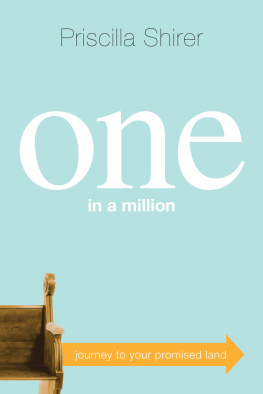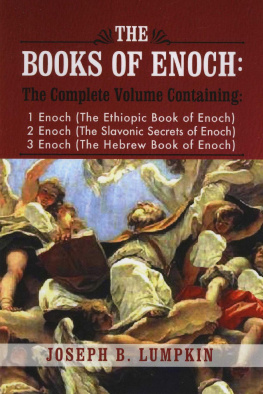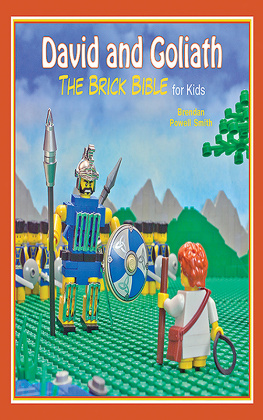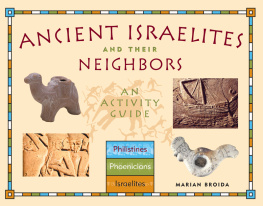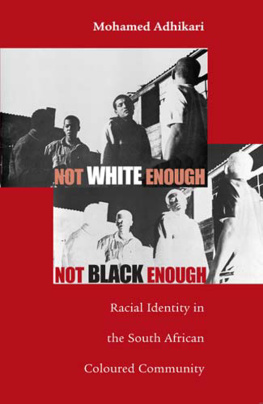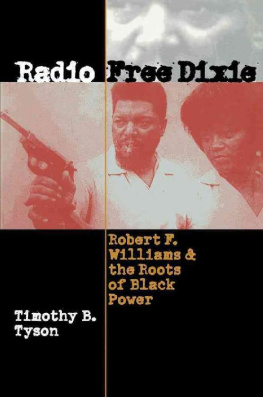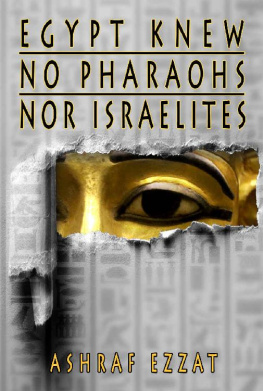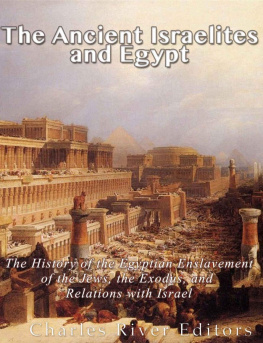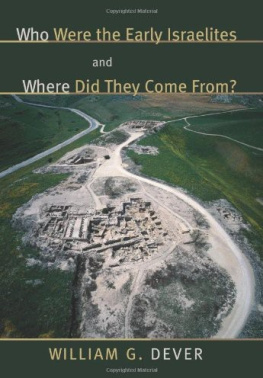Reconsiderations in Southern African History
Richard Elphick, Editor

University of Virginia Press
2018 by the Rector and Visitors of the University of Virginia
All rights reserved
Printed in the United States of America on acid-free paper
First published 2018
9 8 7 6 5 4 3 2 1
Library of Congress Cataloging-in-Publication Data
Names: Edgar, Robert R., author.
Title: The finger of God : Enoch Mgijima, the Israelites, and the Bulhoek massacre in South Africa / Robert R. Edgar.
Other titles: Reconsiderations in southern African history.
Description: Charlottesville : University of Virginia Press, 2018. | Series: Reconsiderations in southern African history | Includes bibliographical references and index.
Identifiers: LCCN 2017057359| ISBN 9780813941028 (cloth ; alkaline paper) | ISBN 0813941024 (cloth ; alkaline paper) | ISBN 9780813941035 (e-book)
Subjects: LCSH: Israelites (South Africa)History. | Christian sectsSouth AfricaHistory20th century. | Mgijima, Enoch, 18681929. | MillennialismSouth AfricaHistory20th century. | Bulhoek Massacre, Bulhoek, South Africa, 1921. | MassacresSouth AfricaHistory20th century.
Classification: LCC BR1450 .E34 2018 | DDC 236.9dc23
LC record available at https://lccn.loc.gov/2017057359
Cover art: Enoch Mgijima in the crimson robe he wore at Israelite services.
(Authors collection)
To those who died at Marikana
And he gave unto Moses, when he had made an end of communing with him upon Mount Sinai, two tables of testimony, tables of stone, written with the finger of God.
Exodus 31:18
I am not here to fight anybody or to cause only bloodshed, but if the finger of God has pointed out that This must be the place, no earthly place, no earthly force can prevent it. I did not call this gathering here every follower of mine came of his own free will. It may be the fulfillment of the Scriptures that say, All my people will gather together for that journey to the promised land. And if this is the place, Bullhoek, no earthly power can interfere.
Extract from a letter from Enoch Mgijima, mid-May 1921
Acknowledgments
No one will ever accuse me of rushing my scholarship to print. This study started as a graduate seminar paper at UCLA under the direction of Edward Alpers, and it has gradually evolved into its current form. Hence I have a lengthy list of people and institutions to thank.
My original research in 197374 was funded by a Fulbright-Hays dissertation grant. In South Africa I was assisted by staff at the National Library of South Africa in Cape Town and Pretoria, the University of Cape Town library, the Jaeger Library at Witwatersrand University, the Cory Library at Rhodes University, the South African Police Archive, the South African Defence Force Archive, and the National Archives in Cape Town and Pretoria. I have a fond memory of the Pretoria archive, which was then located in the Union Buildings and featured a tearoom that served a divine melktart. Among all the dedicated people who assisted me, I would like to single out Cory Librarys Michael Berning and Sandy Rowoldt and Witwatersrand Universitys Anna Cunningham and Michelle Pickover, who were to assist me for decades to come on this and other projects. I vividly remember the Cory librarians alerting me to a file of rare Abantu Batho clippings on the Bulhoek massacre in 1994. At Rhodes University I was affiliated with the Institute for Social and Economic Research.
During my research in the Queenstown area I was hosted by Rev. Martin and Doris Eberle at Shiloh Mission Station near Whittlesea. Whites were not allowed to stay in black areas overnight, but mission stations were exempted from the rule. The Israelites were very helpful to me in setting up interviews and welcoming me to their services. In particular I would like to thank A. V. Ndlangisa, J. J. Mbayi, Albert Mgijima, and Gideon Ntloko. I have been fortunate in maintaining a friendship with Gideon that has extended to his children.
My primary academic position over the years has been at Howard University, where I enjoyed the backing of the Department of African Studies and some tolerant chairs, Bob Cummings, Sulayman Nyang, and Mbye Cham, who gave me free rein to tackle some unorthodox projects that most departments would have looked askance at. I have benefited from a supportive faculty and inspiring students. I also appreciate my affiliation with the Department of History at Stellenbosch University.
To whip this study into shape I have been fortunate to have readers who have made a valiant effort to check facts, reorganize the structure, and breathe life into my prose. Thanks to Helen Hopps, Andre Odendaal, Jeff Peires, MaryLouise Peires, Ben Carton, Chris Saunders, Rick Elphick, and Charles Villa Vicencio. A special thanks to Maria Kail for translating sources in German script and George Roupe for meticulously editing my manuscript.
Parts of several chapters have appeared in journals. An earlier version of chapter 1 was published as The Prophet Motive: Enoch Mgijima and the Origins of the Israelite sect in South Africa in the International Journal of African Historical Studies 15, no. 3 (1982): 20120, while parts of chapter 6 were published as The Ash-Heap of History: Reflections on Historical Research in Southern Africa in African Studies Quarterly 9, no. 4 (2007), 4761.
I acknowledge a debt to the League of Extraordinary Gentlemen who have not found a cure for the common cold and do not lose any sleep over it.
Finally, I want to thank my wonderful son, Leteane, who wakes up every day with an infectious smile, which makes it difficult for me to be the grumpy old man I aspire to be.
Introduction
South Africa is known throughout the world as a country where the most fierce forms of colour discrimination are practiced, and where peaceful struggles of the African people for freedom are violently suppressed. It is a country torn from top to bottom by fierce racial strife and where the blood of African patriots frequently flows. Almost every African household in South Africa knows about the massacre of our people at Bulhoek in the Queenstown district where detachments of the army and police, armed with artillery, machine-guns, and riles, opened fire on unarmed Africans.
Nelson Mandela (1962)
Rough wet winds
parch my agonized face
as if salting the wounds of
Bulhoek
Sharpeville
Soweto
Mafika Gwala, Tap-Tapping (1979)
Modern South African history has been punctuated with periodic bursts of government brutality. One of the earliest examples, the Bulhoek massacre, shook the morning of 24 May 1921. A force of eight hundred white policemen and soldiers confronted an African prophet, Enoch Mgijima, and some three thousand of his followers called the Israelites, who refused to leave their holy village of Ntabelanga (the Mountain of the Rising Sun), located about fifteen miles southwest of Queenstown in eastern Cape Province, where they had been gathering since early 1919 to await the end of the world. While the Israelites maintained they were there to pray and worship in peace, the white authorities viewed them as illegally squatting on land that was not theirs. After many months of fruitless negotiations with the Israelites, government officials finally sent out an armed force to Bulhoek to expel them. They had hoped the Israelites would agree to leave without a fight, but if it came to that, the police and soldiers were prepared to use their modern weapons.


